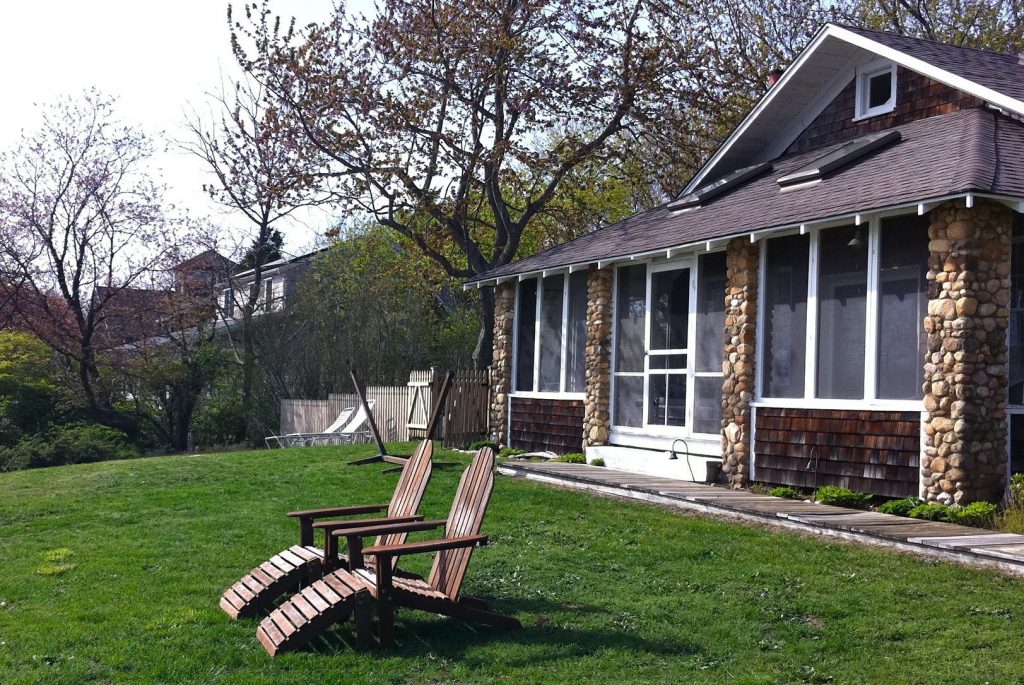Skift Take
Vrbo is benefiting from a ton of direct traffic because vacation rentals are having a moment, and competitors' paid marketing through Google fell off a cliff. The brand will likely get some sustainable benefit from the lift, but the dynamic can change in a heartbeat.
What a difference seven months and a global pandemic make. If you recall, Expedia Group forced out CEO Mark Okerstrom last December, in part, because the company hadn’t adapted to Google capturing a bunch of its lodging traffic.
OK, you can debate whether a revenue decline in Expedia Group’s Hotels, Media and Platform business in the third quarter of 2019 could truly be laid at Google’s doorstep or whether much of the issue was Expedia’s lack of execution.
But fast forward to Thursday, and one part of Expedia Group’s lodging business, its Vrbo vacation rental brand, is thriving in the midst of the coronavirus calamity. Vrbo is “extremely profitable” in some respects, according to parent company CEO Peter Kern, because the whole-home vacation rental brand is thriving as travelers go directly to its websites to research and book.
When you don’t have to market much through Google — and that has been Expedia’s achilles heel in recent years — bookings can accrue more heavily to the bottom line.
“So the mix of business has been extremely profitable on a relative basis for Vrbo, and that has been terrific,” Kern said during Thursday’s earnings call about second quarter financial results, referring to the balance between direct traffic and visitors wooed through Google. “We’re not against using performance marketing in Vrbo, and we certainly are trying to use it diligently. But our mix and our returns on marketing are at massively higher levels than they we were historically running at in, call it, late 2019.”
When travel executives refer to “performance marketing,” they are largely referring to paid advertising through Google versus getting traffic from free links or travelers visiting their websites directly.
SimilarWeb estimates that Vrbo currently gets about 83 percent of its traffic organically — in other words for free — and close to 17 percent through paid ads. That’s a major change for Vrbo, which suffered in 2019 when Expedia Group started phasing out its HomeAway vacation rental brand and transitioning it all to Vrbo, and its organic traffic fell through the floor.
The free traffic boost for Vrbo in the second quarter began as many travel advertisers ceased paid marketing through search engines in March and April, for example.
Delicate Paid Marketing Strategy for Vrbo
Kern said Expedia Group didn’t advertise much in March and April because of the pandemic but has been wading back in to performance marketing with all its brands. However, it has been advertising “delicately” with Vrbo because of all the free and direct traffic that Vrbo has been attracting.
Kern said he is not opposed to using paid advertising for Vrbo, adding but “I think the mix (of free versus paid advertising) is terrific right now.”
He said this is not necessarily a “structural shift” for Vrbo as it is too soon to tell. Vrbo’s propensity to benefit from direct traffic could change as competitors get healthier, Kern added.
Hotels Versus Short-Term Rental
As has been a phenomenon across much of the travel industry, short-term rentals have recovered faster than hotels as travelers tend to want to stay in non-urban destinations within driving distance and away from big-box, urban hotels.
Kern said average daily rates are rising in vacation rentals, especially in “compressed” markets, while the hotel recovery is slower and discounting is more rampant.
Simplifying Expedia Group
Kern gave an update on Expedia Group’s strategic drive to simplify the company’s operations. He noted that performance marketing teams from the company’s various brands have been integrated; the HomeAway brand will be phased out over the course of the next year; its CarRentals.com business in Europe has been folded into the Expedia brand; and the company shuttered its multifamily building short-term rental business.
The company, Kern said, has cut its annual run rate by $400 million, and is on target to reach more than $500 million in cost cuts.
In terms of its ability to survive the coronavirus crisis, Expedia Group reported that it had $5.5 billion in cash, cash equivalents, and short-term investments at the end of June, and in July it raised an additional $1.5 billion.
In the second quarter, Expedia Group notched a net loss of $753 million on revenue of $566 million, an 82 percent decline from the comparable period a year earlier.
Kern said analysts should give too much weight to second quarter financials as they are “not terribly telling.”
Dwell Newsletter
Get breaking news, analysis and data from the week’s most important stories about short-term rentals, vacation rentals, housing, and real estate.
Have a confidential tip for Skift? Get in touch
Tags: advertising, earnings, expedia, google, hotels, marketing, vrbo
Photo credit: A vacation rental that had been listed on Vrbo as seen on May 1, 2011. Vrbo is leading Expedia Group's recovery. Supercake / Flickr.com
